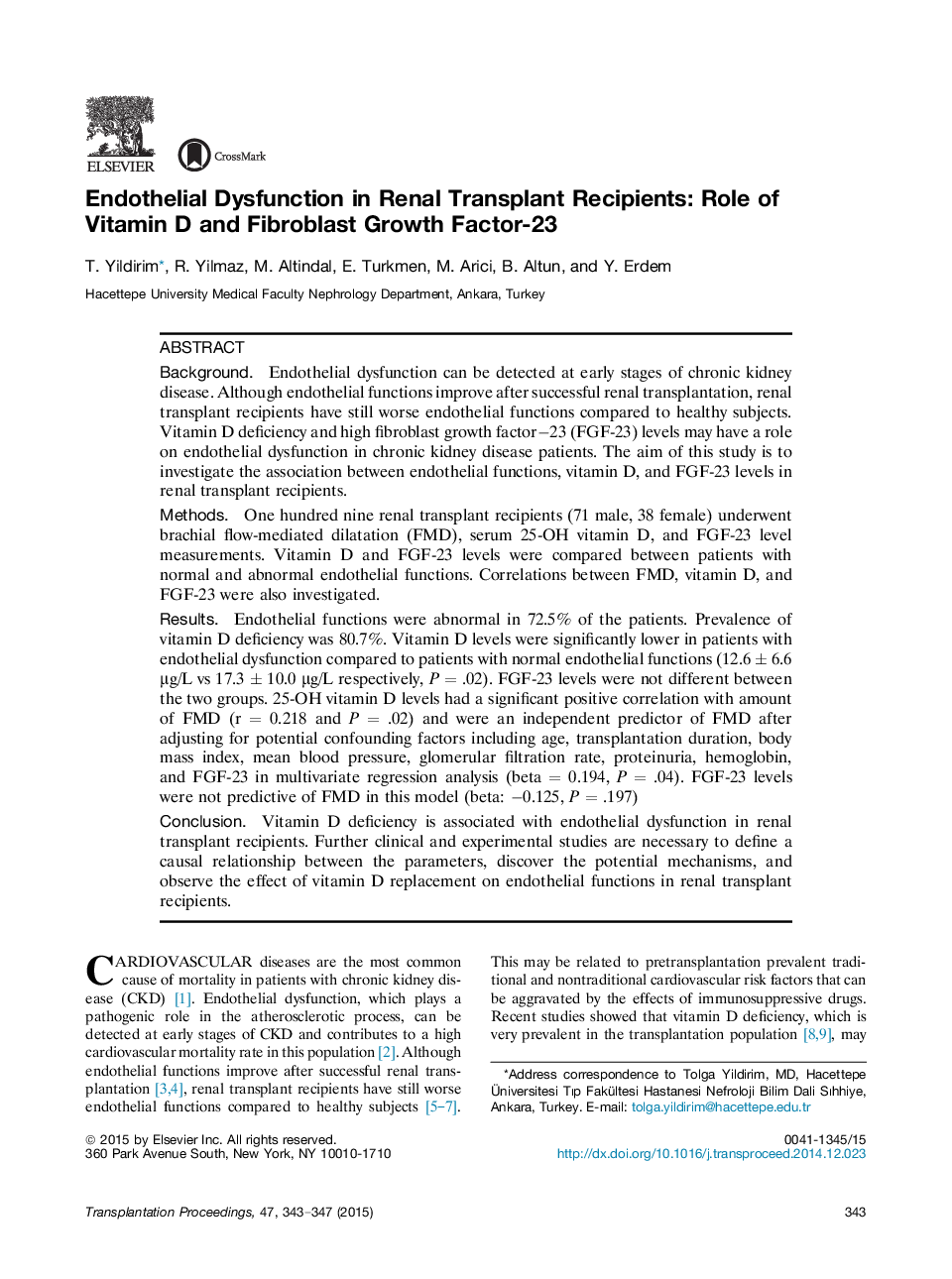| Article ID | Journal | Published Year | Pages | File Type |
|---|---|---|---|---|
| 4257606 | Transplantation Proceedings | 2015 | 5 Pages |
•Vitamin D deficiency is associated with endothelial dysfunction in renal transplant recipients.•Further clinical and experimental researches are necessary to define a causal relation between vitamin D and endothelial dysfunction, discover the potential mechanisms and observe the effect of vitamin D replacement on endothelial functions in renal transplant recipients.•There was no relation between endothelial dysfunction and FGF-23 in this population.
BackgroundEndothelial dysfunction can be detected at early stages of chronic kidney disease. Although endothelial functions improve after successful renal transplantation, renal transplant recipients have still worse endothelial functions compared to healthy subjects. Vitamin D deficiency and high fibroblast growth factor−23 (FGF-23) levels may have a role on endothelial dysfunction in chronic kidney disease patients. The aim of this study is to investigate the association between endothelial functions, vitamin D, and FGF-23 levels in renal transplant recipients.MethodsOne hundred nine renal transplant recipients (71 male, 38 female) underwent brachial flow-mediated dilatation (FMD), serum 25-OH vitamin D, and FGF-23 level measurements. Vitamin D and FGF-23 levels were compared between patients with normal and abnormal endothelial functions. Correlations between FMD, vitamin D, and FGF-23 were also investigated.ResultsEndothelial functions were abnormal in 72.5% of the patients. Prevalence of vitamin D deficiency was 80.7%. Vitamin D levels were significantly lower in patients with endothelial dysfunction compared to patients with normal endothelial functions (12.6 ± 6.6 μg/L vs 17.3 ± 10.0 μg/L respectively, P = .02). FGF-23 levels were not different between the two groups. 25-OH vitamin D levels had a significant positive correlation with amount of FMD (r = 0.218 and P = .02) and were an independent predictor of FMD after adjusting for potential confounding factors including age, transplantation duration, body mass index, mean blood pressure, glomerular filtration rate, proteinuria, hemoglobin, and FGF-23 in multivariate regression analysis (beta = 0.194, P = .04). FGF-23 levels were not predictive of FMD in this model (beta: −0.125, P = .197)ConclusionVitamin D deficiency is associated with endothelial dysfunction in renal transplant recipients. Further clinical and experimental studies are necessary to define a causal relationship between the parameters, discover the potential mechanisms, and observe the effect of vitamin D replacement on endothelial functions in renal transplant recipients.
